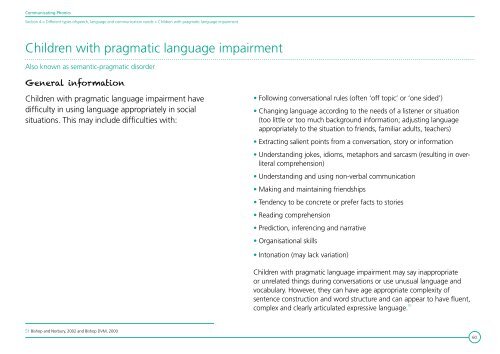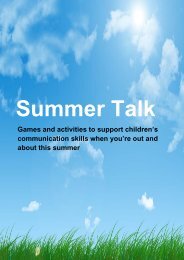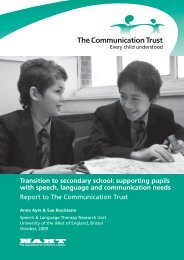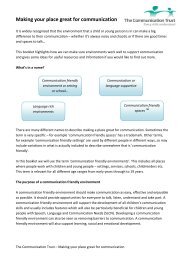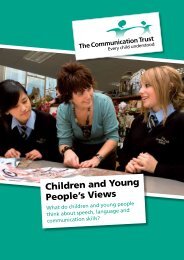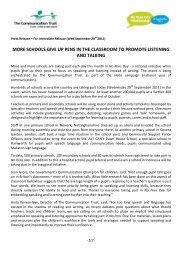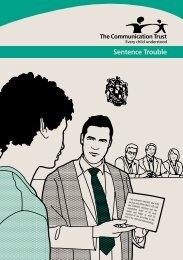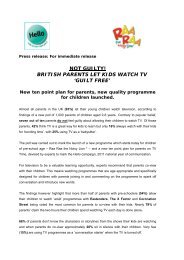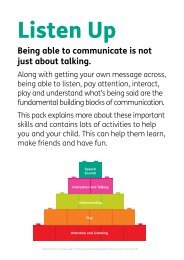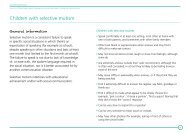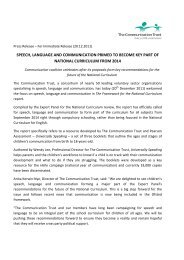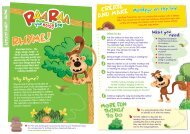Communicating Phonics - The Communication Trust
Communicating Phonics - The Communication Trust
Communicating Phonics - The Communication Trust
Create successful ePaper yourself
Turn your PDF publications into a flip-book with our unique Google optimized e-Paper software.
<strong>Communicating</strong> <strong>Phonics</strong>Section 4 > Different types ofspeech, language and communication needs > Children with pragmatic language impairmentChildren with pragmatic language impairmentAlso known as semantic-pragmatic disorderGeneral informationChildren with pragmatic language impairment havedifficulty in using language appropriately in socialsituations. This may include difficulties with:• Following conversational rules (often ‘off topic’ or ‘one sided’)• Changing language according to the needs of a listener or situation(too little or too much background information; adjusting languageappropriately to the situation to friends, familiar adults, teachers)• Extracting salient points from a conversation, story or information• Understanding jokes, idioms, metaphors and sarcasm (resulting in overliteralcomprehension)• Understanding and using non-verbal communication• Making and maintaining friendships• Tendency to be concrete or prefer facts to stories• Reading comprehension• Prediction, inferencing and narrative• Organisational skills• Intonation (may lack variation)Children with pragmatic language impairment may say inappropriateor unrelated things during conversations or use unusual language andvocabulary. However, they can have age appropriate complexity ofsentence construction and word structure and can appear to have fluent,complex and clearly articulated expressive language. 5151 Bishop and Norbury, 2002 and Bishop DVM, 200060


